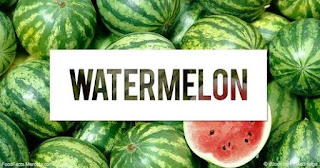Work of fibre
Fiber benefits our body through a complex process of digestive and cellular activity. First of all, simple sugars and fats extract from food in the small intestines during digestion. Secondly, complex carbohydrates in plant material dietary fiber enter the colon. The colon is a part of our digestive track where a large amount of microbes reside. Last, microbes in our digestive track turn dietary fiber into beneficial material for the body to use.
Healthy Protein Fatty Acids & Fiber Benefits
Certain nutrients from fiber such as cellulose go straight through our system and do not get consumed by microbiota. However there are other types of dietary fiber that microbiota use to degrade and ferment the sugars in our food. Protein fatty acids form and absorb into our blood stream as a result of microbiota activity. Once absorbed, these fatty acids are a key element to regulate our bodily functions.
Many people think protein fatty acids are simply a salvageable form of calories. Popular opinion states that fatty acids simply extract calories from complex carbohydrates. On the contrary, protein fatty acids do much more and are very important for our gut health. Immune system regulation in addition to reduction of inflammatory symptoms occurs with fiber. Lack of dietary fiber intake and protein fatty acid production results in poor health. We are also more likely to become sick as we develop a hyper-inflammatory immune system. This is an unfortunate health condition of the Western world caused by diets that consist of limited fiber and large amounts of processed foods. Fiber benefits us by working in conjunction with protein fatty acids to support optimal digestion.
Solving Digestive Problems With Fiber
Our digestive system is sensitive and prone to diseases. Antibiotic use and deprivation of complex carbohydrates are detrimental to digestion. Consequently this type of mistreatment of our gut creates an opening for pathogens to exploit and as a result make us sick. In addition, the mucous layer of our intestine becomes thin and inflammatory responses increase due to a lack of dietary fiber. Solve the digestive track sickness quickly with an increase of dietary fiber. Constipation is another common digestive condition which is resolved by eating more fiber. Bloating is a common issue you are likely to face in a high fiber diet. Add more fiber to your diet slowly and monitor your symptoms to control bloating.
Moderate Your Fiber Intake Carefully
Microbiota in our intestines are important for proper digestion. Increasing the amount of this cellular activity to accommodate an increase of fiber requires careful consideration. New microbiota which processes our dietary fiber may not accumulate as rapidly as we are ready to increase our fiber. Hence we must increase our fiber intake at a slow and moderated pace in order to accommodate our current microbiota count.
In conclusion, awareness of fiber benefits is the answer to achieve proper functionality of your digestive system. Also by eating more of this nutrient, you will shield yourself from disease. Finally, our bowel movements become easier and we are less likely to become sick by increasing our fiber intake.
Thank you



Comments
Post a Comment